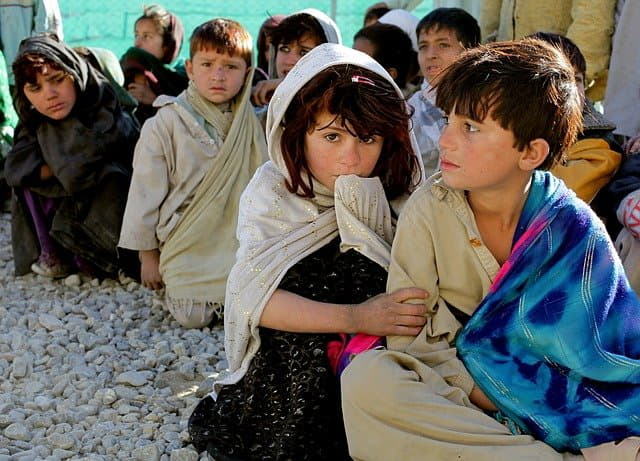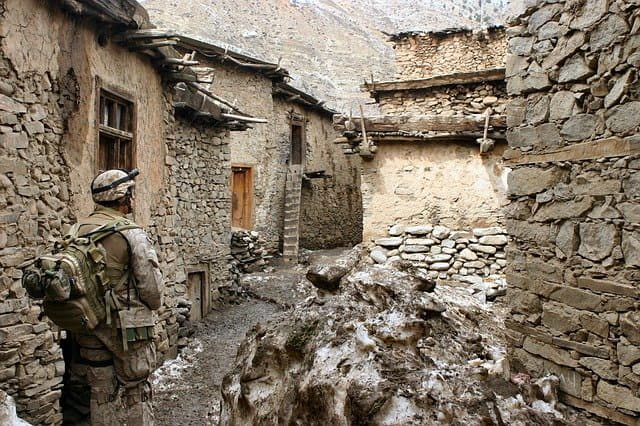Introduction:
India has pushed for an inclusive and effective ceasefire in Afghanistan. According to the Ministry of External Affairs, lasting peace requires peace within and surrounding Afghanistan. India also highlighted the importance of a zero-tolerance policy for terrorism.
Background:
- India was adamantly opposed to any relations with the Taliban in the 1990s and 2000s. However, its position appears to have evolved.
- India dispatched a diplomatic delegation to Moscow in 2018 when Russia held Afghan and Taliban peace talks.
- India likewise played no involvement in the Doha agreement between the US and the Taliban, despite the significant security implications for India if a regime transition occurred in Afghanistan.
- India’s position has evolved in lockstep with the realities in Afghanistan.
India’s Afghanistan policy:
- At Tajikistan’s 9th Heart of Asia Conference, it was stated that India supports all attempts to “accelerate the discussion” between the Afghan government and the Taliban, a rare direct reference to the militant group.
- Taliban currently controls most rural districts, at least 13, and has indirect authority over the remaining 33% of the region. India must ensure that the Taliban’s rebirth does not hurt Kashmir.
- China had long before made contact with the Taliban. Russia has hosted the two sides’ negotiations. European powers have expressed an interest in sponsoring discussions as well. As a result, India must be more adaptable to the new geopolitical reality.
- India has developed strong links with the Afghan people and government since the Taliban’s demise, investing in various initiatives involving education, energy generation, irrigation, and other infrastructure development. For example, the Salma Dam and the Kabul hospital.
- Afghanistan received its first shipment of immunizations from India in February. India has struck a deal to develop the Shahtoot dam near Kabul. Thus, if the Taliban seized power, this could sever its economic, strategic, and security ties. However, disengagement can be counter-intuitive.
- India, like other parties, is grappling with the question of how to assist Afghanistan in ending the conflict without utter capitulation to the Taliban.
- The memory of the IC-814 hijacking is still vivid, and India must avoid unrest spilling over into the country.
Why is Afghanistan significant to India?
- Afghanistan is beneficial to India’s economic and security interests.
- India’s ability to teach a fledgling democracy will go a long way toward demonstrating to the world that India is indeed a great power and a responsible one at that.
- The TAPI (Turkmenistan-Afghanistan-Pakistan-India) pipeline project intends to unite an energy-rich Central Asia to South Asia, would remain dormant until Afghanistan regains peace.
- India’s interest in Afghanistan stems from its desire to counter Pakistan’s regional influence.
- New Delhi requires Kabul to understand Islamabad better, and hence it must foster cordial relations.
- As per US Geological Survey, the country is home to trillion-dollar-worth of resource deposits.
- India has been barred from the Afghanistan peace process on numerous occasions, most recently during the 6+2+1 grouping’s recent conference.
- According to foreign policy experts, India must participate in intra-Afghan negotiations. It is well-known that Pakistan backs the bloodthirsty Taliban rule in Afghanistan.
- Any deterioration in Afghanistan’s democratic strength and a rise in Taliban influence will be detrimental to India.
- A Taliban-led administration in Kabul does not bode well for India’s security in Kashmir. It may serve as a staging area for violent assaults against India.
- The IC-814 hijacking should serve as a reminder to India that corrective action is the need of the hour, as is establishing diplomatic channels with the Taliban that are gaining strength in the region. Otherwise, India will be isolated and pushed to the periphery of West Asia.
- India’s strategic objectives, particularly economic and geostrategic ones, intersect with those of Afghanistan. Chabahar and subsequent Zaranj Delaram trade routes would expand the market for Indian commodities and vice versa.
- India’s geostrategic objective must be to prevent Afghanistan from becoming a second front for Pakistan in future skirmishes or the occurrence of war.
Conclusion:
India’s involvement in the peace process might bolster the Afghan government, which is currently negotiating from weakness. New Delhi should seek what Mr. Jaishankar called “double peace” within Afghanistan and throughout the region, leveraging its regional clout and longstanding relationships with the US and Russia.










Great topic. Thank you for excellent info.
Welcome
You have observed very interesting points! ps nice website .
Thank you
It’s actually a great and helpful piece of info. I’m glad that you shared this useful information with us. Please keep us up to date like this. Thanks for sharing.
Welcome
You managed to hit the nail on the top as well as defined the whole thing without having side effects, people can take a signal. Will likely be back to get more. Thanks
Welcome
Some really prime content on this internet site, saved to fav.
THANK YOU
I dugg some of you post as I cogitated they were very helpful handy
Thank you
You are my aspiration, I possess few blogs and often run out from to post .
I am very glad to peer your article. Thank you so much and I’m looking forward to contact you. Will you kindly drop me a e-mail?
Thank you
Thanks , I’ve recently been searching for the information on this topic for a while and yours is the greatest I have discovered so far.
Thank you
Thank you
Exceptional post but I was wanting to know if you could write a litte more on this topic?
I’d be very grateful if you could elaborate a little bit further.
Kudos!
Also visit my blog; tracfone 2022
Live and learn.
Heya, I’m for the first time here. I came across
this website and found it really useful & it helped me a
lot. I hope to give something back and aid others as you
helped me.
My blog – tracfone 2022
You have mentioned very interesting details! ps nice site.
Thank you
Thank you for your articles. They’re very helpful to me. May I ask you a question?
May I have more information on the topic of your article?
Thank you for writing this article. I appreciate the subject too.
Welcome
I really enjoyed reading your post. It helped me a lot and I hope it can help others too.
Thank you
I’ve to say you’ve been really helpful to me. Thank you!
Welcome
Thank you for your help. I must say you’ve been really helpful to me.
Welcome
I really enjoyed reading this article
Thank you
Thank you for writing this post!
Welcome
Thank you for your excellent articles.
Welcome
Please tell me more about your excellent articles
Thank you for writing so many excellent articles. May I request more information on the subject?
Thanks for the help
Welcome
You helped me a lot. These articles are really helpful dude.
Thank you